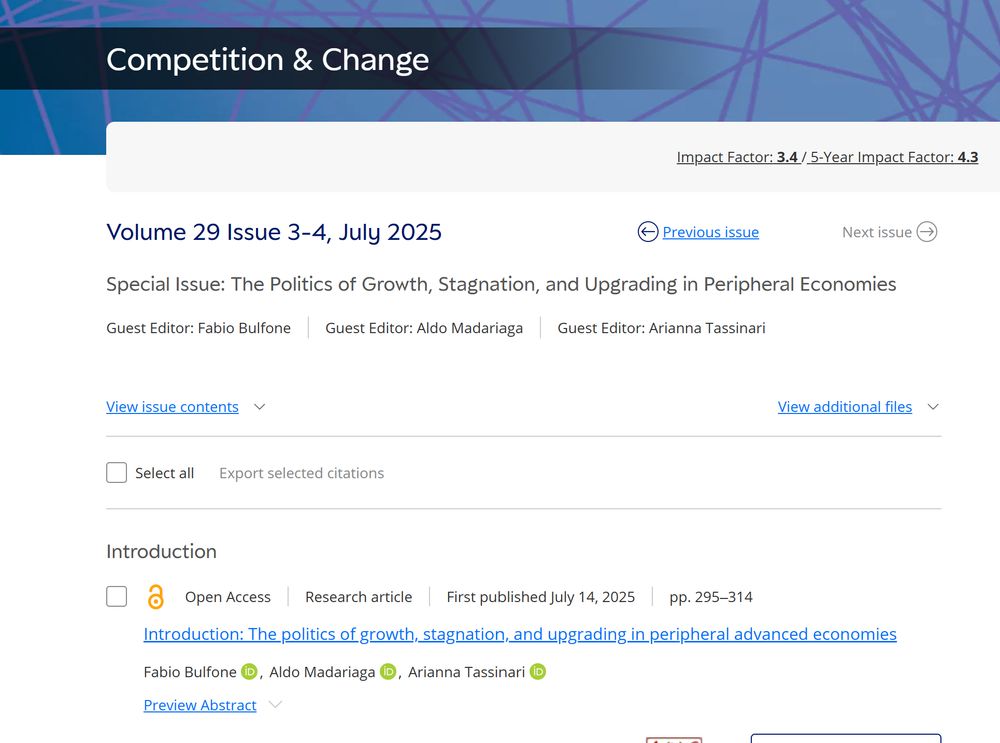Arianna Tassinari
@aritassinari.bsky.social
480 followers
330 following
60 posts
Assistant Prof, Dept of Social and Political Sciences, University of Bologna | Political economy, labour, crises, Southern Europe
Posts
Media
Videos
Starter Packs
Pinned
Reposted by Arianna Tassinari
Reposted by Arianna Tassinari
Reposted by Arianna Tassinari





